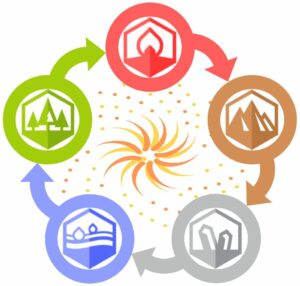Renew and strengthen from the inside-out
Leadership Development & Renewal
At Move As One, we guide you to renew, embody and strengthen your effectiveness. Activate your unique path forward with new clarity, focus, and alignment and improve your professional satisfaction.
Our Leadership Programs and retreats are for managers and employees, as well as entrepreneurs and mission-oriented leaders. We provide in-person and online leadership training in Minnesota.

Whole-System Facilitation

This time calls for a new consciousness and a new collective leadership capacity to meet challenges in a more integrated, intentional and authentic way.
Whole-System Facilitation emerges awareness to consciously create and inspires solutions to care for the whole.
Choose a topic and gather for a community leader conversation. Let’s solve problems together!
Our unique leadership approach guides you to embody your presence, passion and purpose. Learn to facilitate others as an agent to change while attuning to the highest wisdom of your work.
Wise Leaders:
can move us beyond our current conditioning, to heal trauma, integrate emotional intelligence, and tend to ecosystems for wholeness;
motivate from the inside-out, and develop a greater capacity within others to create the future for all to thrive; and
develop skills to navigate with uncertainty, align with body wisdom, derive clarity from the formless, and activate from wholeness.
Wise leaders understand how the laws of nature play out in teams and organizations. They identify imbalances within team dynamics, organizational relationships, and workplace environments. They use practical ways to create synergy based on balanced replenishment and expenditure. They inspire creativity and productivity by unleashing the natural flow of life force.
In a world where many structures are changing and even falling apart, the Move As One system provides a tested framework to usher in authentic, wise and co-creative actions.
Need help on your leadership journey?
Wise Leader Program Series
This program series is for new and experienced leaders and managers to develop leadership skills and attune to their purposeful direction while staying resilient and inspired.
This program can inspire and support your wisdom to:
Stay in rhythm with yourself
Fulfill your leadership purpose
Develop financial well-being
Collaborate and engage with others

The Wise Leader Program helps you renew culture from the inside out. It energizes and empowers you to stay inspired on purpose and develop a balanced, successful organization. Learn the energy, action, and awareness needed to move from old conditioning to an ecosystem awareness for whole system transformation. Using the Move As One™ system, you can cultivate a perspective that moves in rhythm with our natural order – to “move as one” within yourself, your community, and your environment.
Overall, this program will help you:
Increase your impact
Renew your passion and purpose
Improve your intuitive decision-making skills
Facilitate co-creative movements, and
Cultivate whole system change
Wise Leaders & Managers are implementors, creatives, healers, encouragers, seekers, changemakers, connectors, motivators, achievers …

Our intentions behind these offerings are to:
- restore the integrity of body, mind, heart, and soul,
- help balance our world with YIN (feminine) wisdom,
- nourish/develop our intuitive wisdom,
- release old paradigms of confusion and blind-spots,
- heal wounds of imbalance,
- enable self compassion . . .
And finally, align with love, and co-create a better world together!



